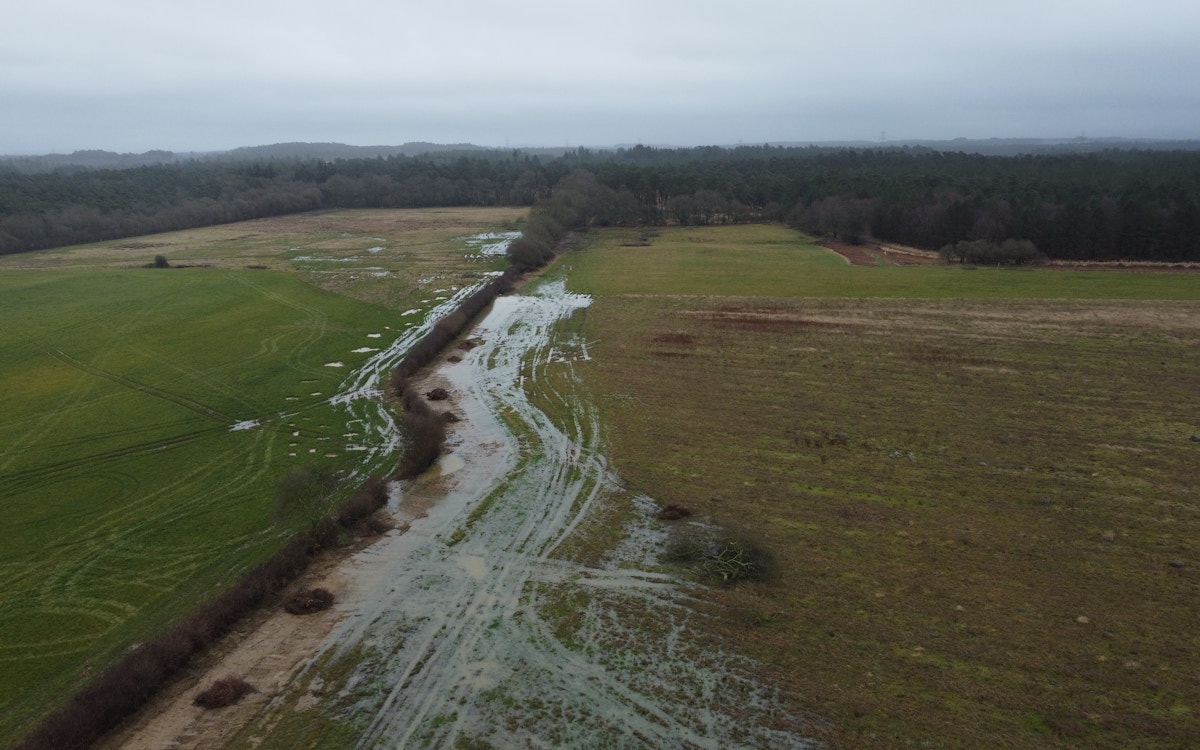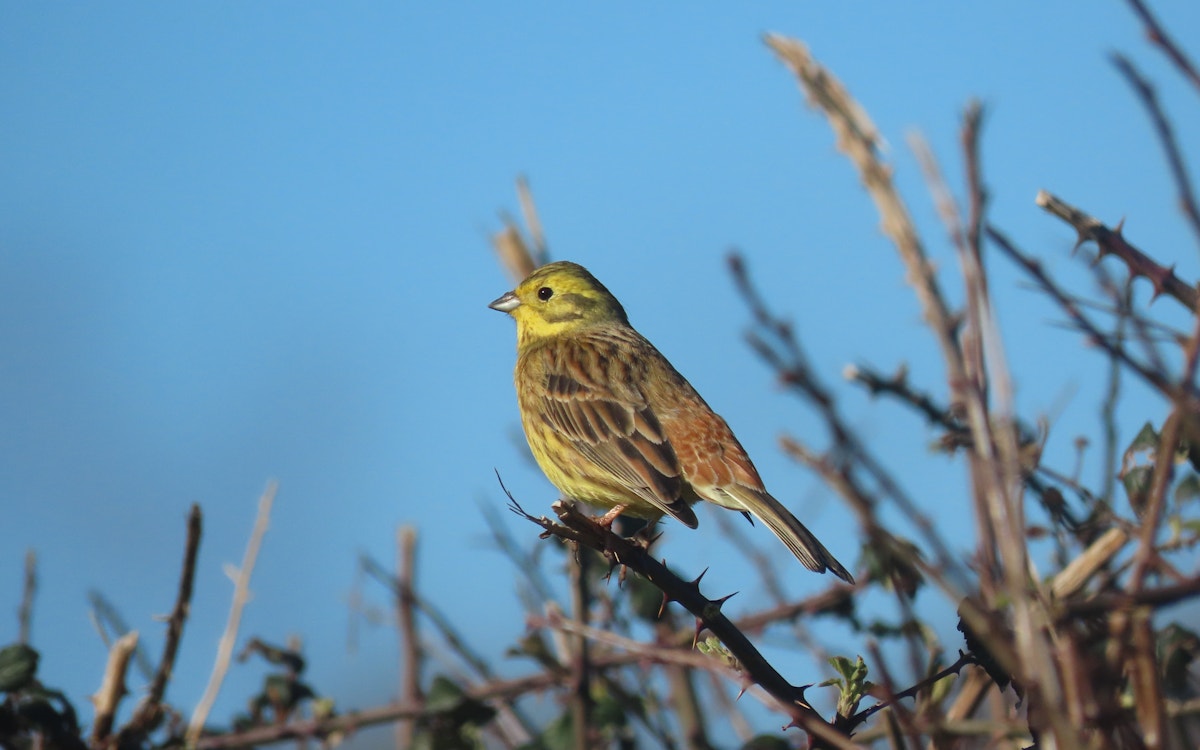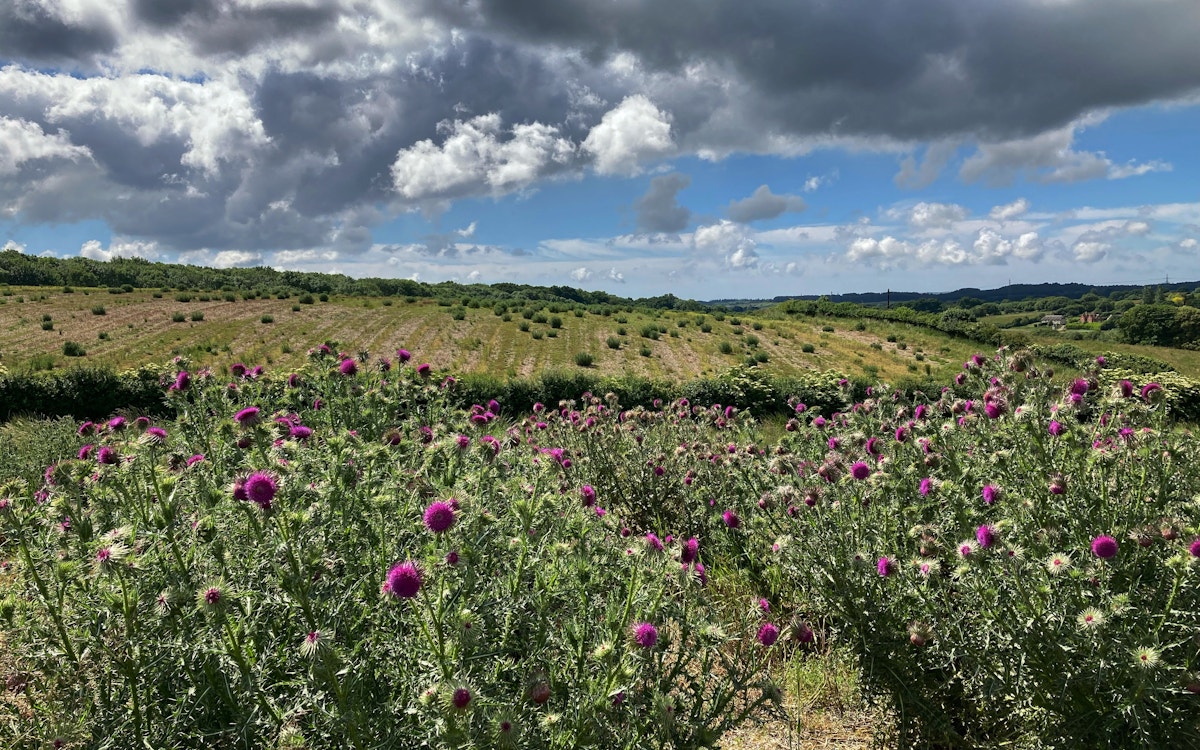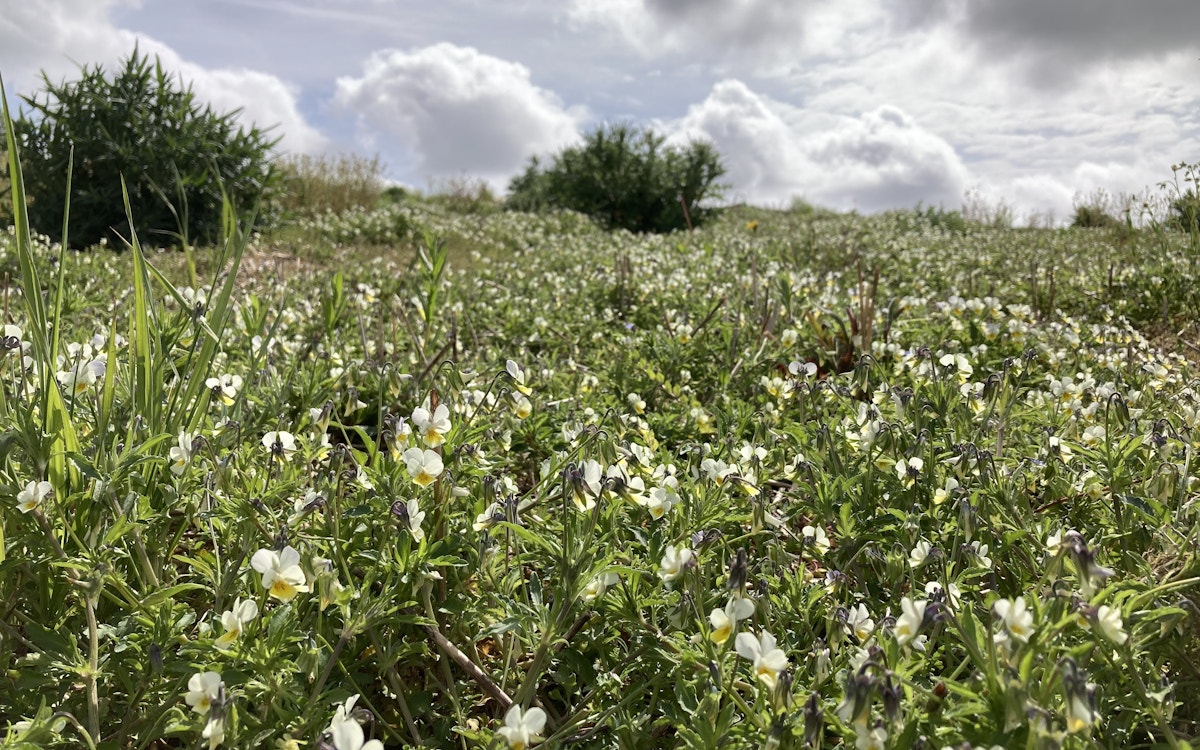Wild Woodbury
England’s first community rewilding project.

Dorset Wildlife Trust have acquired a 170ha project close to Bere Regis. Their ambition – to turn the land from intensive arable land to a large-scale rewilding project for nature recovery. The location of the project close to Bere Regis means that there is an excellent opportunity to engage with the local community. The project team are hoping to engage with the community for input into its site plans and vision, train local volunteers to help on site, and provide high quality space for communities to access nature. A community orchard is also proposed for the project, as well as space to grow food sustainably, But these plans may change through community consultation.
The project will allow nature to lead the way, and it is hoped that this will result in the restoration of more woodland and wetland habitats. Rewilding the land will not only provide opportunities for nature to recover, but also aims to reduce high nitrate levels in the area and prevent them from entering Poole Harbour. This will be achieved by reducing high intensity farming, and restoring wetlands that can capture and store nitrates preventing them from entering our waterways.
KICK-STARTING REWILDING
The site has historically been under intensive arable management. The rewilding strategy will cease arable farming to encourage natural regeneration. Some supplementary tree planting may be needed to encourage a greater diversity of species on site.
Mixed grazing animals, including cattle, ponies and pigs, will be introduced to the area to kick-start natural processes and encourage a mosaic of habitats.
Some land drains will be broken up and ditches filled in to retain water on site, restore natural hydrology and encourage wetlands to establish.

future plans
- Detailed baseline and monitoring of the site including soil monitoring, ditch flows, ground water, ecological studies and socio-economies studies
- Consider reintroduction of crab apple and black poplar

The Rewilding Network
The Rewilding Network is the go-to place for projects across Britain to connect, share and make rewilding happen on land and sea.
More about Wild Woodbury
Find out more about Wild Woodbury on their website.



